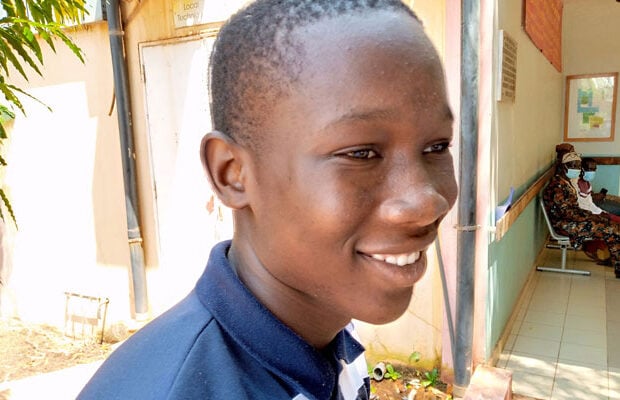Makan Magassa is an 18-year-old with severe hemophilia A. He lives about 235 km from Bamako, the capital city of Mali. In 2017 he was injured, and developed a hematoma of his right leg which became severely infected. If not for donated factor provided by the WFH Humanitarian Aid Program, he would have lost his leg.
The young Malian’s hematoma was caused by an accident. Initially, Makan was treated by a traditional healer in his village through a procedure which involved an incision in his leg. When the incision wouldn’t stop bleeding, traditional powders and ointments were put into the cut which caused the hematoma to become superinfected. When it became apparent that the young man would need immediate medical attention, he was transported to a hospital where surgeons recommended that his leg be amputated because they believed the bleeding had caused a malignant tumor to form.
Fortunately, physicians decided to send Makan to a hemophilia treatment centre (HTC) for a blood test, and it was at this point that it was discovered that he had severe hemophilia A. He was immediately given donated factor provided by the WFH Humanitarian Aid Program. Within one month, his edema subsided, and his dosage of donated factor was reduced. After four months, the edema was completely healed, and he was able to return home. He is currently being followed-up by the HTC and has not developed inhibitors.
The WFH Humanitarian Aid Program provides donated factor around the world. In 2020, HTCs in Mali were provided with over 2.3 million IUs of factor. Since 2015, over 7.6 million IUs have been provided to the African country. To find out more about the WFH Humanitarian Aid Program, please click here.
About the WFH Humanitarian Aid Program
The WFH Humanitarian Aid Program improves the lack of access to care and treatment by providing much-needed support for people with inherited bleeding disorders in developing countries. By providing patients with a more predictable and sustainable flow of humanitarian aid donations, the WFH Humanitarian Aid Program makes it possible for patients to receive consistent and reliable access to treatment and care. None of this would be possible without the generous support of Sanofi Genzyme and Sobi, our Founding Visionary Contributors; Bayer and Roche, our Visionary Contributors; Grifols, our Leadership Contributor; and our Contributors, CSL Behring and Takeda. To learn more about the WFH Humanitarian Aid Program, visit www.treatmentforall.org.













